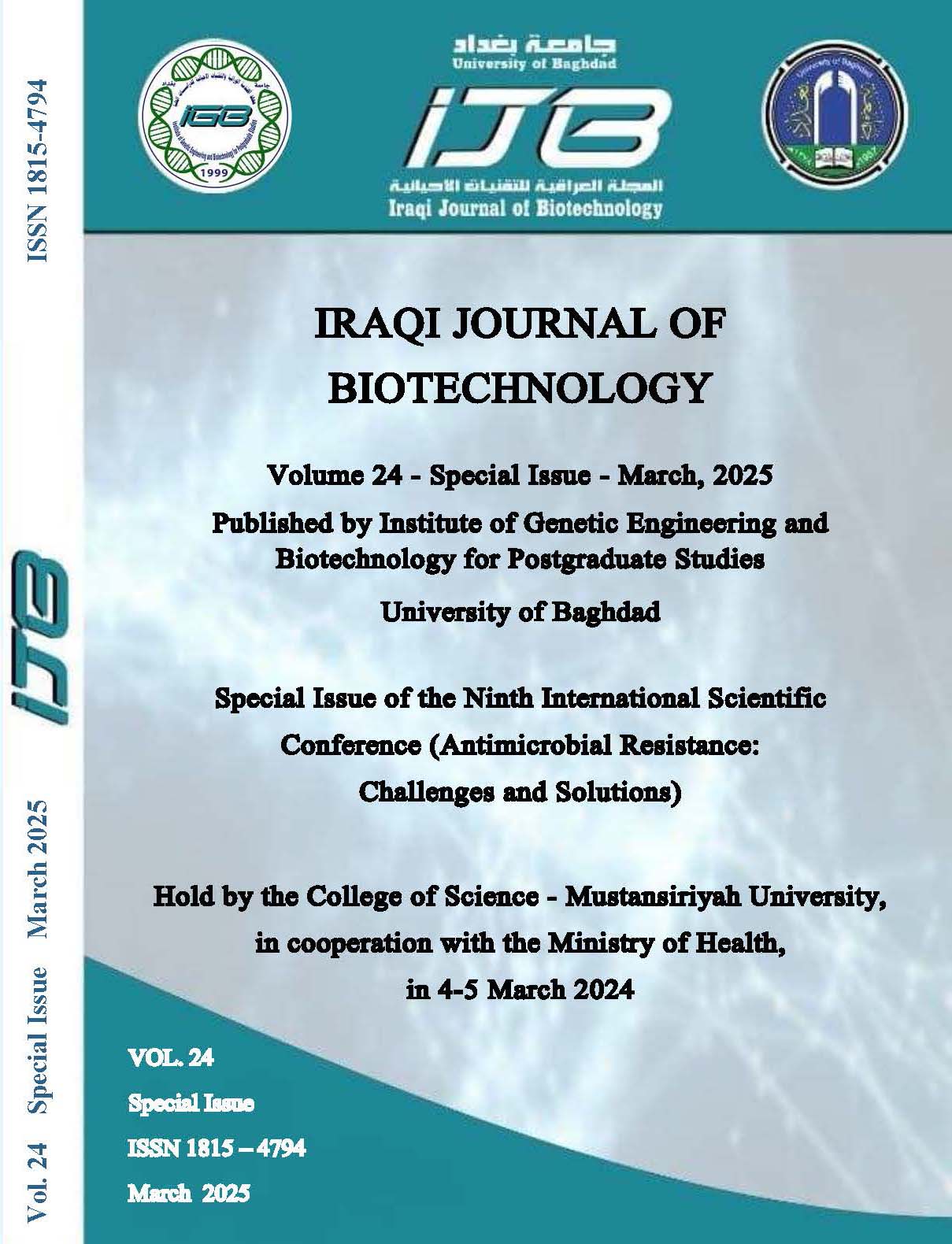Effect of Biosynthesized Zinc Oxide Nanoparticles Against MDR Pathogenic Bacteria Isolated from Wounds and Burns
Abstract
This study aimed to detected the antibacterial and antivirulence properties of zine oxide nanoparticles (ZnO-NPs) nanoparticles biosynthesized by Lactobacillus salivarius against bacterial infections from wounds and burns such as Pseudomonas aeruginosa, Klebsiella pneumonia, Acinetobacter baumanii and Staphylococcus aureus. By calculating the minimum inhibitory concentration (MIC), the antibacterial activity was assessed. The results indicated that the MIC varied from 12.5 to 50 mg/ml. The anti-virulence factors were also found to be effective against the studied bacteria's hemolysin, urease, and biofilm formation. Results indicated that after being used in treatment with biosynthesized ZnO nanoparticles, the capacity to produce urease and hemolysin was reduced. The best effect was observed in biofilm formation after 72 hours for all isolates, with inhibition(14.07, 25.85, 41.08, 52.85, 46.43, 55.1, 36.9, 43.22 )% for each of isolates P. aeruginosa (P8), P. aeruginosa (P11), A. baumanii (A3), A. baumanii (A9), K.pneumoniae (K5), K.pneumoniae (K6), S .aureus (S3), S. aureus (S9) respectively.


